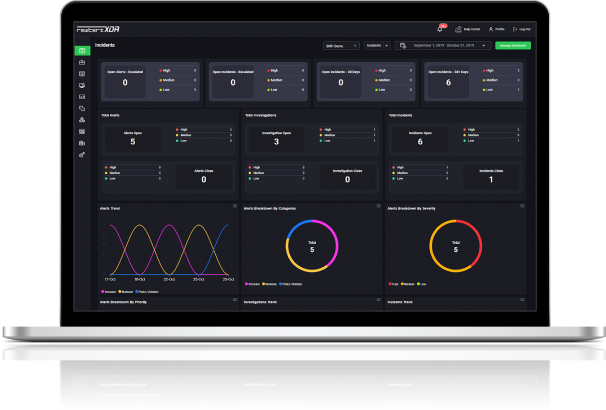
Multiple vulnerabilities have been found in Windows Server 2012 that can be exploited to cause System access, Privilege escalation and Exposure of sensitive information.
IMPACT: HIGH
PUBLISH DATE: 13TH December 2018
OVERVIEW
Multiple vulnerabilities have been reported in Microsoft Windows Server 2012, Microsoft Windows RT 8.1, and
Microsoft Windows 8.1, which can be exploited by malicious, local users to disclose sensitive information and gain
escalated privileges and by malicious people to disclose sensitive information and compromise a vulnerable system.
ANALYSIS
CVE-2018-8595
An information disclosure vulnerability exists when the Windows GDI component improperly discloses the contents of its memory, aka “Windows GDI Information Disclosure Vulnerability.” This affects Windows 7, Windows Server 2012 R2, Windows RT 8.1, Windows Server 2008, Windows Server 2019, Windows Server 2012, Windows 8.1, Windows Server 2016, Windows Server 2008 R2, Windows 10, Windows 10 Servers.
CVE-2018-8477
An information disclosure vulnerability exists when the Windows kernel improperly handles objects in memory, aka
“Windows Kernel Information Disclosure Vulnerability.” This affects Windows 7, Windows Server 2012 R2, Windows RT 8.1, Windows Server 2008, Windows Server 2019, Windows Server 2012, Windows 8.1, Windows Server 2016, Windows Server 2008 R2, Windows 10, Windows 10 Servers.
CVE-2018-8641
An elevation of privilege vulnerability exists in Windows when the Windows kernel-mode driver fails to properly
handle objects in memory, aka “Win32k Elevation of Privilege Vulnerability.” This affects Windows 7, Windows Server 2012 R2, Windows RT 8.1, Windows Server 2008, Windows Server 2019, Windows Server 2012, Windows 8.1, Windows Server 2016, Windows Server 2008 R2, Windows 10, Windows 10 Servers.
CVE-2018-8611
An elevation of privilege vulnerability exists when the Windows kernel fails to properly handle objects in memory, aka “Windows Kernel Elevation of Privilege Vulnerability.” This affects Windows 7, Windows Server 2012 R2, Windows RT 8.1, Windows Server 2008, Windows Server 2019, Windows Server 2012, Windows 8.1, Windows Server 2016, Windows Server 2008 R2, Windows 10, Windows 10 Servers.
CVE-2018-8639
An elevation of privilege vulnerability exists in Windows when the Win32k component fails to properly handle objects in memory, aka “Win32k Elevation of Privilege Vulnerability.” This affects Windows 7, Windows Server 2012 R2, Windows RT 8.1, Windows Server 2008, Windows Server 2019, Windows Server 2012, Windows 8.1, Windows Server 2016, Windows Server 2008 R2, Windows 10, Windows 10 Servers.
CVE-2018-8621
An information disclosure vulnerability exists when the Windows kernel improperly handles objects in memory, aka
“Windows Kernel Information Disclosure Vulnerability.” This affects Windows Server 2012, Windows 7, Windows
Server 2008 R2.
CVE-2018-8514
An information disclosure vulnerability exists when Remote Procedure Call runtime improperly initializes objects in
memory, aka “Remote Procedure Call runtime Information Disclosure Vulnerability.” This affects Windows 7, Windows Server 2012 R2, Windows RT 8.1, Windows Server 2008, Windows Server 2019, Windows Server 2012, Windows 8.1, Windows Server 2016, Windows Server 2008 R2, Windows 10, Windows 10 Servers.
CVE-2018-8596
An information disclosure vulnerability exists when the Windows GDI component improperly discloses the contents of its memory, aka “Windows GDI Information Disclosure Vulnerability.” This affects Windows 7, Windows Server 2012 R2, Windows RT 8.1, Windows Server 2008, Windows Server 2019, Windows Server 2012, Windows 8.1, Windows Server 2016, Windows Server 2008 R2, Windows 10, Windows 10 Servers
CVE-2018-8626
A remote code execution vulnerability exists in Windows Domain Name System (DNS) servers when they fail to
properly handle requests, aka “Windows DNS Server Heap Overflow Vulnerability.” This affects Windows Server 2012 R2, Windows Server 2019, Windows Server 2016, Windows 10, Windows 10 Servers.
CVE-2018-8622
An information disclosure vulnerability exists when the Windows kernel improperly handles objects in memory, aka
“Windows Kernel Information Disclosure Vulnerability.” This affects Windows 7, Windows Server 2012 R2, Windows RT 8.1, Windows Server 2008, Windows Server 2012, Windows 8.1, Windows Server 2008 R2.
AFFECTED PRODUCTS
Microsoft Windows Server 2012
Microsoft Windows RT 8.1
Microsoft Windows 8.1
MITIGATION
Apply update.
- Windows Server 2012 (KB4471326):
- Windows Server 2012 (Server Core installation) (KB4471326):
https://catalog.update.microsoft.com/v7/site/Search.aspx?q=KB4471326
Windows RT 8.1 (KB4471320):
Apply update (please see the vendor’s service database for details).
- Windows 8.1 for x64-based systems (KB4471320):
- Windows Server 2012 R2 (KB4471320):
- Windows Server 2012 R2 (Server Core installation) (KB4471320):
https://catalog.update.microsoft.com/v7/site/Search.aspx?q=KB4471320
- Windows 8.1 for 32-bit systems (KB4471320):
https://catalog.update.microsoft.com/v7/site/Search.aspx?q=KB4471320
- Windows 8.1 for x64-based systems (KB4471322):
- Windows Server 2012 R2 (KB4471322):
- Windows Server 2012 R2 (Server Core installation) (KB4471322):
https://catalog.update.microsoft.com/v7/site/Search.aspx?q=KB4471322
- Windows 8.1 for 32-bit systems (KB4471322):
https://catalog.update.microsoft.com/v7/site/Search.aspx?q=KB4471322
- Windows Server 2012 (KB4471330):
- Windows Server 2012 (Server Core installation) (KB4471330):
https://catalog.update.microsoft.com/v7/site/Search.aspx?q=KB4471330
If you think you’re the victim of a cyber-attack, immediately send an email to soc@rewterz.com for a quick response.








